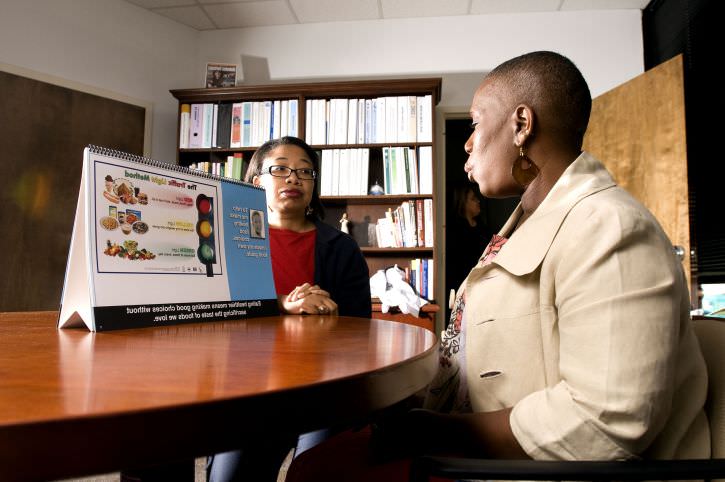The goal of many pa tients in brain injury rehabilitation is to return to their jobs. Vocational rehabilitation counseling is a specialized, employment-related therapy.
tients in brain injury rehabilitation is to return to their jobs. Vocational rehabilitation counseling is a specialized, employment-related therapy.
To help people get back to work, we design vocationally-related activities that are relevant to the specific working environment the individual wants to return to.
For example, if computer work is part of a job, treatment might include typing practice as part of fine motor skills recovery, working on cognitive skills through navigating websites, and relearning the ins and outs of computer programs they will be using in their job.
Vocational rehabilitation works side by side with other treatments like speech, occupational and physical therapy. Pate's team approach means therapists from other disciplines work with the vocational counselor to use employment related activities in place of more generalized exercises. This gives people a comprehensive rehabilitation that is specifically tailored to their life and work goals.
For people who are unable to return to previous employment because of the severity of their injury, vocational rehab can explore options for alternative careers. VRCs (vocational rehabilitation counselors) help patients manage many aspects of working after an injury, from handling cognitive challenges to job modifications to vocational assessment and career exploration.
Vocational rehabilitation counseling can include:
- Job site evaluations
- Job task review and practice
- Work readiness assessment
- Acting as liaison with the patient's workplace
- Job counseling
- Testing for vocational interests, work values, and skills
- Developing career and life goals
- Assistive technology or devices as modifications in the workplace
- Employment services
- Re-education advice and planning
- Referrals to other resources
- Interview coaching
Vocational rehabilitation counselors at Pate are part coach, part counselor, part diagnostician. VRCs assess the patients' strengths and listen to their career goals. They help people review their job options after the injury to see if they still "fit."
Vocational counselors can help identify new career paths or educational opportunities. If a full return to work isn't possible after the injury, our counselors can work with these patients to explore other meaningful ways to use their talents, like volunteering.
After a brain injury, some patients may have disabilities that can make their former job tasks more difficult. They may have memory deficits, need physical assistance or help coping with cognitive processing and emotional changes. VRCs specialize in fitting the patient's existing strengths into the job description and coming up with modifications - different ways to accomplish the same things - if needed.
After an injury, it's not unusual for people to find their priorities have changed. They may want to spend more time with family, return to school or choose a new career path. Vocational rehabilitation counselors are there to support the patient's new goals, whatever they are, and to make a new start in life.
